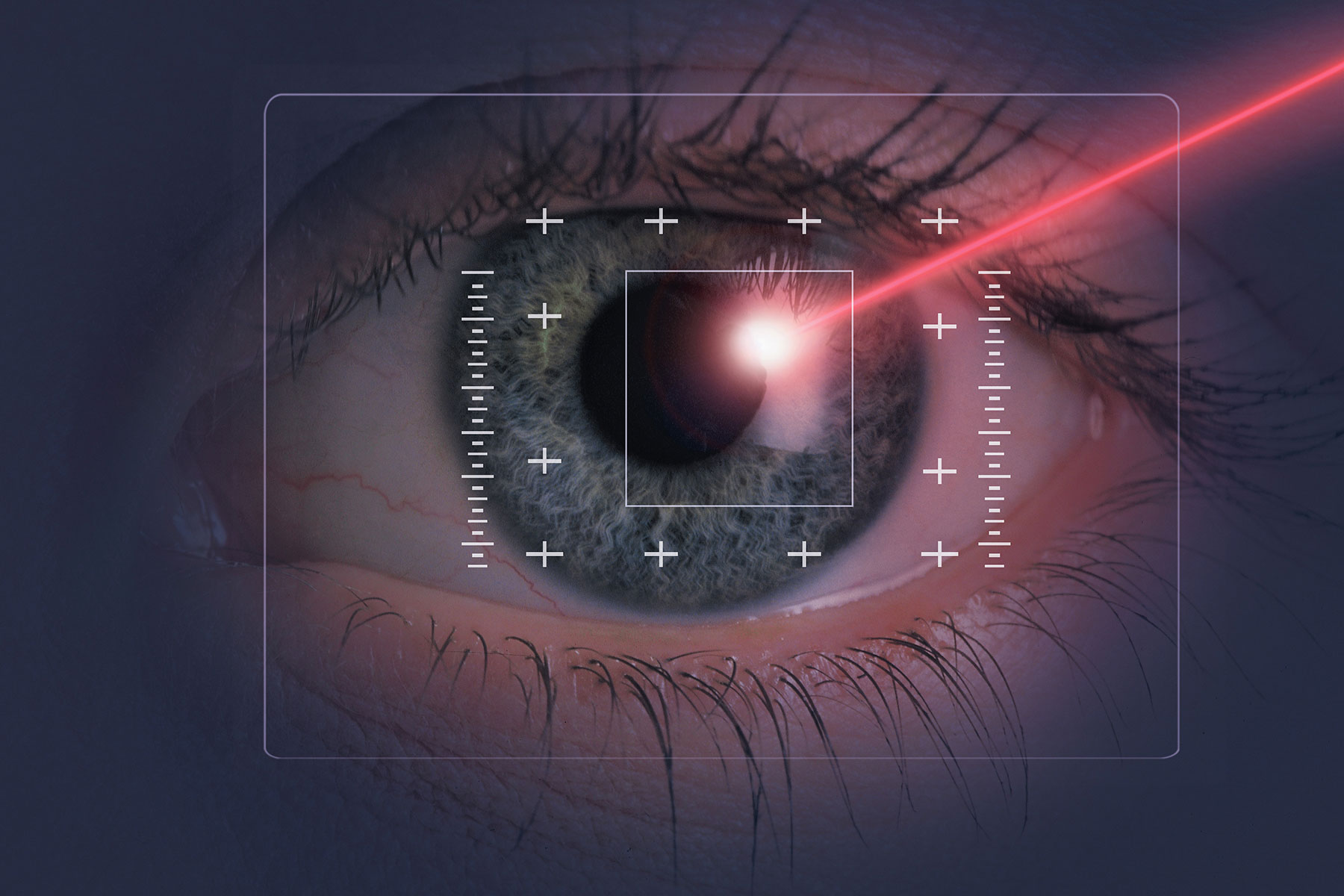Mythbusting LASIK: What You Should Know

When the quality of your vision declines, it can affect your day-to-day activities, your job, your relationships – and possibly, your safety.
For many people, the possibility of freedom from eyeglasses and contacts is reason enough to pursue laser vision surgery. Though commonly called LASIK, (Laser In-situ Keratomileusis), that procedure is just one of several vision correction or refraction surgeries performed with lasers. Each treats specific vision needs.
“We have performed these procedures safely and successfully for more than 35 years and have the largest collection of lasers in the U.S. For those reasons, we give patients the best vision modern science can provide,” says Dr. William Culbertson, a laser vision correction surgeon and corneal specialist at Bascom Palmer Eye Institute, part of the University of Miami Health System.
Positive patient outcomes
Better, longer-lasting vision.
Lasers use sophisticated “mapping” technology to correct vision abnormalities. “Each patient responds differently, but the vast majority experience crisp, clear vision without glasses or contact lenses. We can determine if you are a good candidate for laser vision correction and what to expect from your procedure,” Dr. Culbertson says.
No barriers.
Police officers, firefighters, and athletes enhance their safety by seeing well without glasses or contacts, while other professionals enjoy greater creative freedom.
Quick, painless recovery.
Laser vision correction is an outpatient procedure. “One of the best aspects of laser vision correction surgery is the speed of visual recovery. After surgery, patients experience discomfort and blurred vision for four to six hours but after that time, they notice quick recovery of their visual acuity. By the next morning, they’re usually able to drive themselves back in for their follow-up visit,” says Dr. Sonia Yoo, a Bascom Palmer laser vision correction surgeon and corneal specialist. Vision continues improving over the next few weeks.
Future flexibility.
Laser vision correction patients can have future adjustments and can undergo future procedures such as cataract surgery, if needed.
Corrects corneal problems.
Bascom Palmer eye surgeons use lasers when necessary to fine-tune vision after cataract surgery, treat corneal scars or distorted corneas (keratoconus), and to perform corneal transplants in people with corneal ulcers (keratitis).
Common misconceptions about LASIK
Dr. Culbertson and Dr. Yoo say patients typically share some common misconceptions.
Laser surgery stops nearsightedness (myopia). Not true. In fact, patients must wait until their myopia stabilizes before having surgery, which usually happens by age 21.
I’m too nearsighted to benefit from vision correction surgery. New technology such as Small Incision Intrastromal Lenticule Extraction (SMILE), increases treatment options for people with a high correction due to myopia or astigmatism. If you were not a candidate in the past, it’s worth getting screened again.
It might hurt. There is some discomfort after surgery, but the procedure itself is painless. Patients receive local anesthesia and an oral sedative before surgery.
It’s a young person’s procedure. Many people in their 70s have successful vision correction surgeries.
It’s expensive. At Bascom Palmer, patients know upfront what the procedure will cost. If they decide to proceed after their initial complimentary consultation, they can choose from a variety of payment options.
I may risk blindness. Statistically, there’s a greater risk of going blind from contact lens use than from laser surgery. Improper handling and wear of contacts poses a great risk of infection that may lead to blindness. Long-term contact lens use also decreases oxygen on the cornea, which can cause blindness.
At Bascom Palmer, vision correction surgery is performed by surgeons who are cornea specialists. Using sophisticated “mapping” technology, they create treatments unique to each patient’s eyes.
Unencumbered from glasses or contact lenses, patients experience more flexibility and freedom than they ever thought possible.
To see if you are a candidate for laser vision correction, call 877-GO-LASIK or apply for an appointment at Bascom Palmer.
Nancy Moreland is a contributing writer for the UMiami Health News Blog. She has written for several major health care systems and the Centers for Disease Control and Prevention. Her writing also appears in the Chicago Tribune.
Tags: Bascom Palmer, cornea surgery, corneal transplants, keratoconus, laser surgery, laser vision correction, LASIK, refractive surgery, sonia yoo, William Culbertson
